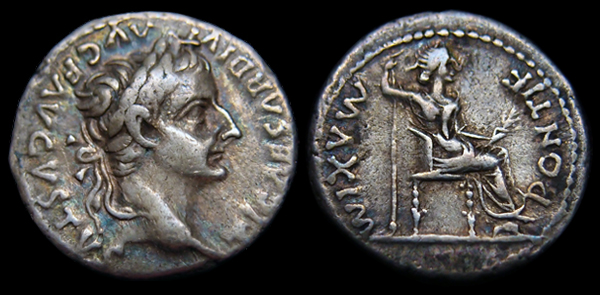Book Review: Romans Disarmed: Resisting Empire, Demanding Justice
Tuesday, 28 May 2019
| John McKinnon

Romans Disarmed: Resisting Empire, Demanding Justice
By Sylvia C. Keesmaat and Brian J. Walsh
(Ada, MI: Baker Books, 2019)
The book of Romans: Paul’s systematic theology par excellence for evangelicals. This is the go-to book for the technical low-down on sin, salvation, justification by faith, substitutionary atonement and pre-destination, not to mention the definitive view on homosexuality, the historicity of Adam and God’s ultimate use of all our tragedies for good.
As such, it has become a weapon in our tribal wars. Romans (along with a few other texts) has been aimed at and fired against the LGTIQ community - witness the Israel Folau controversy. It has been used to validate oppressive regimes via the traditional interpretations of Romans 13. As the authors state in the preface, it has for centuries been ‘used theologically as an instrument of oppression and exclusion’. Hence the title Romans Disarmed – Paul’s letter ‘needs to be disarmed’.
But this book is not just about debunking those traditional views - it also has a very positive aspect. What if Romans, rather than a timeless systematic theology, is really a pastoral letter to those living at the heart of the Roman Empire that seeks to disarm the violence of that first-century power?
This double entendre spells out the mission of authors Sylvia Keesmaat and Brian Walsh. Using the creative style that characterised their first book Colossians Remixed – modern day targums, fictional re-enactments and dialogue with an imaginary interlocutor – they present an incredibly fresh and refreshing reading of Paul’s important work.
Building on the ‘new perspectives’ interpretative paradigm that restored to Paul his context as a second temple pharasaical Jew, they add the context of the hegemonic Roman Empire and the more local context of the Roman house churches. Expelled under Claudius, Jews had recently returned to Rome under Nero, and the house church congregations now included Jewish Christians along with with Gentile believers, barbarian slaves and Roman masters - all learning how to co-exist in the body of Christ. Taking this context into account makes a huge difference to how we understand this letter.

The authors take the original context seriously in seeking to understand Paul’s intent, but also take our modern day 21st century first-world context seriously in making the book relevant today. Like the first-century Romans, we also live under an oppressive empire, struggle with issues of exclusion and marginalisation, and have to work out how to live as God’s people in such circumstances. Ultimately then, this is a book about discipleship. In the hands of Keesmaat and Walsh, Paul’s letter to the Romans becomes not a theological treatise but a pastoral letter encouraging the readers to faithfully follow Jesus in their time and place. As such, it becomes a far more useful and positive resource for Christians today.
Readers of NT Wright will find some familiar ground, ranging from discussions of faith/faithfulness and righteousness/justice through to Wright’s analogy of the Bible as a drama in which we play out the final act. Both Keesmaat and Walsh have worked with Wright and they remain good friends. However, Romans Disarmed avoids the technical discussions of Wright and moves beyond these by asking ‘so what?’ This is the departure point for the authors - faithful exegesis and full appreciation of the original context is paramount but the Bible is only useful to us if we can answer this question.
In translating a letter written to house churches at the heart of the Roman Empire two thousand years ago into discipleship challenges for people living today at the heart of global capitalism and US hegemony, the authors cover some wide ground. Homelessness, and the displacement and consequent marginalisation of indigenous people, is their starting theme. In fact, they provide a reading of the whole letter in terms of home, homelessness and exile. While homelessness is a favourite theme (Walsh co-authored Beyond Homelessness in 2008), it does pick up the idea of Wright and others that the Jews in the second temple period were still longing to return from exile. However, the theme also works for Gentile believers in Rome and certainly applies to our much-displaced and rootless society today. In fact, the authors make the point that global capitalism inevitably destroys home through its emphasis on mobility of capital and therefore labour.
A large section is devoted to the environment and creation care. The environmental destructiveness of the Roman Empire is not known as widely as it should be, but our environmental problems are front and centre today and framed as a natural consequence of the pathologies of empire. Readers of Naomi Klein (This Changes Everything, 2014) will find in Keesmaat and Walsh a very similar critique of our capitalist society but from a more Biblical and Christian perspective. Perhaps more in this section than any other, the authors relate their personal response to the issue. This is both powerful, demonstrating a willingness to ‘put their money where their mouth is’, but also risky, as readers may be tempted to take issue with their particular responses and therefore downplay the bigger picture. My suggestion to readers is to take the authors’ lifestyle decisions as examples of possible responses and to discern for themselves what is appropriate in their own context – do not throw out the baby with the bathwater!
Economic justice is another key theme that emerges. How could it be otherwise, when the house churches consisted of returned Jewish exiles and foreign slaves alongside slave owners and Roman citizens? Keesmaat and Walsh present a comprehensive vision of economic justice from the epistle that causes their imaginary questioner to ask, ‘why didn’t anyone tell me this before? How did it all get lost?’, something I have said about the Bible many times over recent years. While the authors admit this is a bigger question than can be answered in their book, they do point to the Constantinian capture of the church and its continuance to this day, most apparent in the US evangelical church’s support of President Trump. They describe this as a betrayal – ‘a sense that something had to be kept hidden, that Christian faith had been watered down to personal piety married to social and cultural legitimacy ... this ends up being apostasy dressed up in piety’. Strong words indeed, but they go on to give powerful examples of how the book of Romans has been ‘rendered powerless’ in the very issue that is at the heart of the book, namely the question of justification of the sinner. For those of us raised on penal substitutionary atonement theory, this is an exciting invitation to read the text anew and find there a positive message about how ‘God makes it possible for humans beings to do justice’. Suddenly we have a very positive and very practical message from Paul that gets to the heart of discipleship and away from technical soteriological debates.
Given what I have described so far, it is not surprising that Romans 13 and the issue of relationships with the state are covered in detail. The authors find it incomprehensible (and I find myself in total sympathy) that, given everything Paul has said in chapters 1 through 12, we could interpret chapter 13 as recommending a submissive and blind obedience to the state. We really have paid lip service to reading texts in context! As the authors point out, if one verse contradicts the previous one then perhaps something other than a literalistic reading is required. Given how commonplace it is in our daily lives, surely Paul’s use of irony and subversive language should not surprise us.
I mentioned at the start the current ‘Israel Folau’ issue here in Australia. Because homosexuality and gender diversity has become such a flashpoint for the modern church, Keesmaat and Walsh return to it and cover the key texts from both within Romans and elsewhere in some detail. This discussion does move outside the exclusive province of the epistle to the Romans but clearly the authors consider it a key question of 21st century discipleship and Christian community. They include a discussion (first published by Keesmaat in 2004) of how the Jerusalem Council (Acts 15) could be a model of how to resolve thorny issues today.
Finally, the authors cover the issue that most of us would have previously said was what Romans is all about – salvation. Given all that has gone before, what does Paul mean by ‘saved’ in Romans 10:9? Certainly not a one way ticket to a disembodied heaven. Again, the context of second temple Judaism and the marginalised communities in Rome provide us an alternative that makes sense of both the epistle and our modern day discipleship.
I thoroughly recommend this book. It brings the text alive and makes me hungry to read the Bible again. It makes the Bible relevant to my everyday life and to the challenges I feel in the wake of our recent election in which issues such as climate change, economic inequality, refugees and religious freedom were front and centre. It is a book for those who want the Bible to challenge and inform their day-to-day discipleship and to help them find a faith that is meaningful in today’s world. It is a gift to those frustrated with a faith that seems divorced from life and I want to thank Sylvia Keesmaat and Brian Walsh profusely.
Photos: Bust of Nero; Roman coin with inscription: ‘Tiberius, son of the divine Augustus’, source: Wikipedia.
John McKinnon has a PhD in Development Studies and a Masters in Biblical Studies. After careers in finance and international development, he now works with a number of NGOs involved in climate change mitigation and economic fairness.